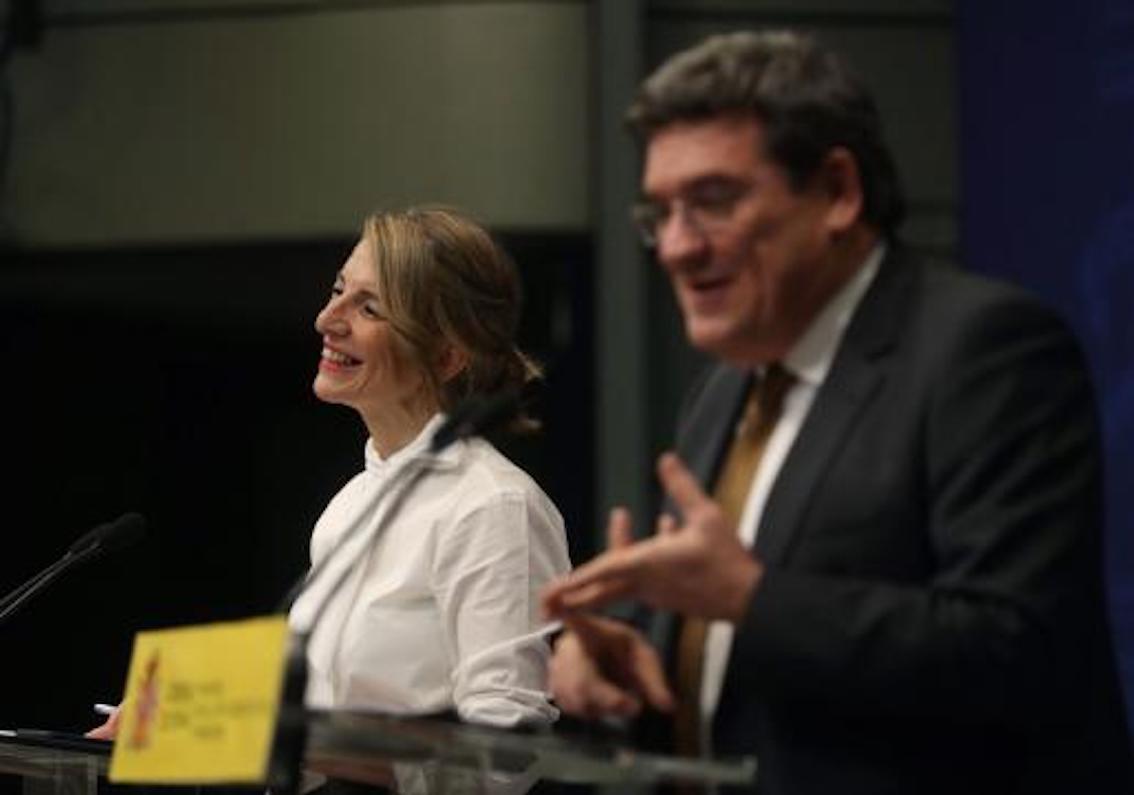Spain’s Temporary employment Regulation Files or ERTE, which is equivalent to furlough in the UK, are being extended until May 31, according to the Labour Minister, Yolanda Díaz.
The new agreement, which maintains the current exemption and protection scheme and employment safeguard clauses, also extends coverage to some activities or CNAE and includes the automatic extension of ongoing files, discharging management and bureaucratic costs to companies.
"The time has come for business owners to trust this Government and leave their prejudices behind," stressed Minister Diaz.
More than 750,000 workers are currently on furlough in Spain, according to Social Security data.
Minister Díaz also said that the levels of social protection for the unemployed are being maintained, even if they lack the necessary requirements.
"We maintain and extend the protection measures for a group that has been severely beaten," she said and made a point of announcing that the ban on firing employees under ERTE will continue for another six months.
The Executive Committee of the Employers' Association led by Antonio Garamendi and Cepyme have confirmed their support for the document and the CCOO and UGT are waiting for minor issues to be resolved, but have already endorsed the agreement, according to Minister Escrivá and Minister Díaz.
The new extension of ERTE will maintain the current regulation in very similar terms, leaving the commitment to maintain employment for six months as it was, despite employers’ demands to make it more flexible.
It also proposes the extension of all ERTEs without the need for new Administrative authorisations and introduces an automatic mechanism for switching between the so-called impediment and limitation ERTEs, so that both types of ERTE can be moved without the need for Administrative authorisation.
The Government's aim is to renew en bloc all current mechanisms for the protection of workers and companies, but has not ruled out the possibility that new Sectors will be added to the ‘ultra-protected' category.
"The ERTE framework that's been approved, in substance, maintains the model that has been in force for the last four months," said Inclusion, Social Security & Migration Minister José Luis Escrivá.
Workers affected by ERTE will continue to have access to benefits without a grace period, the period consumed will not be computed until January 2022 and the benefits will be equal to 70% of the regulatory base.
The new ERTE extension will cost more than 5,000 million euros.


No comments
To be able to write a comment, you have to be registered and logged in
Currently there are no comments.